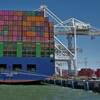The Subcommittee on Coast Guard and Maritime Transportation of the House Committee on Transportation and Infrastructure conducted an oversight hearing on Mariner Education and Work Force. As explained in the Summary of Subject Matter, the focus of the hearing was growing shortage of mariners and the challenges facing the maritime work force. Subcommittee Chair Elijah Cummings (D-MD) expressed concern that the maritime industry is no longer attractive for new entrants. Committee Chair James Oberstar (D-MN) discussed the importance of timely and relevant training. Rear Admiral Joel Whitehead, USCG, explained the role of the International Convention on Standards of Training, Certification, and Watchkeeping for Seafarers (STCW Convention) and the Coast Guard’s involvement in maritime employment. Mr. Sean Connaughton, Maritime Administrator, discussed programs of the Maritime Administration (MARAD) intended to increase the size and professionalism of the US maritime workforce. Mr. Michael Rodriguez, International Organization of Masters, Mates & Pilots, complained of the increasing criminalization of mariners, the stringent medical policy adopted by the Coast Guard, and the growing problem with crewmember fatigue on ships. Mr. Carl Annessa, Hornbeck Offshore Services, explained that the way in which some training requirements are enforced makes it very difficult for unlicensed personnel to transition into licensed positions. Ms. Cathy Hammond, Inland Marine Service, explained that the Coast Guard should not conduct routine safety boardings in the same manner as it conducts “for cause” law enforcement boardings. VADM John Craine, USN (ret), State University of New York Maritime College, discussed the role of state maritime academies in training merchant marine officers. Captain William Beacom, US Merchant Marine, expressed his view that the Coast Guard was more concerned with protecting shipping companies than it was with protecting merchant mariners. Mr. Augustin Tellez, Seafarers International Union, discussed the importance of the Maritime Security Fleet Program, the Jones Act, the Ready Reserve Force, and cargo preference. Captain Arthur Sulzer, USN (ret), discussed the role of maritime secondary education institutions in preparing young people for careers at sea. Captain Jeff Slesinger, Western Towboat Company, discussed the innovative Pacific Marine Towing Industry Partners, a cooperative training venture to attract, train, and retain skilled maritime workers. Ms. Berit Eriksson, Pacific Coast Maritime Forum, proposed that Congress enact a program of loans to individuals to fund maritime training, with the loans to be forgiven if the individual completes 36 months of sea time. (HK Law)
Sponsored Content
Innovative Hull Maintenance: Profitable & Green

Subscribe for
Maritime Reporter E-News
Maritime Reporter E-News is the maritime industry's largest circulation and most authoritative ENews Service, delivered to your Email five times per week












